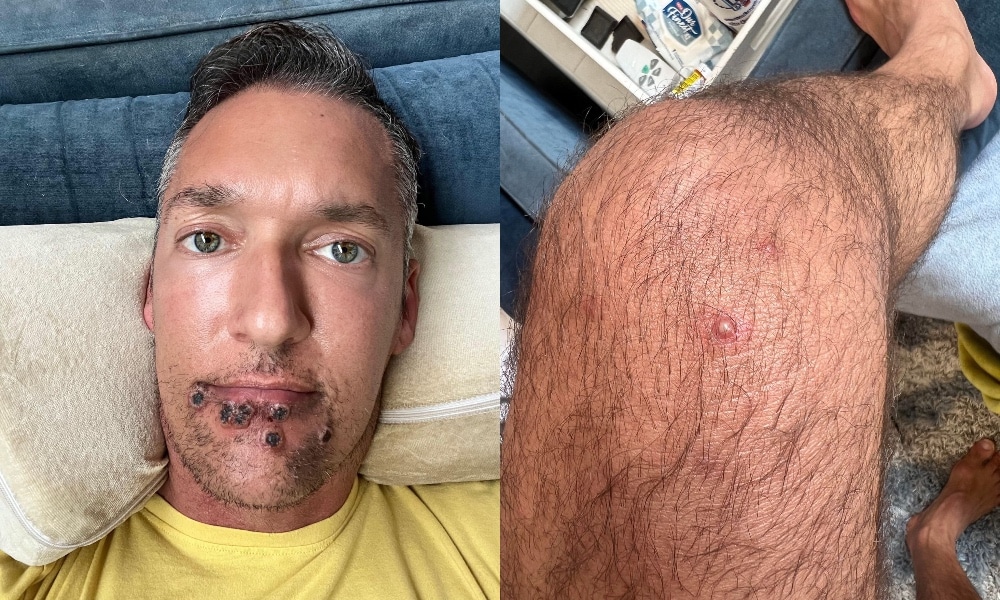New cases found in UK

Experts are calling for ongoing mpox vaccinations across the UK as new cases are found in London. (PinkNews)
Ten new cases of mpox have been detected in the UK, health officials have announced, prompting a call for the vaccination campaign to be extended.
The UK Health Security Agency (UKHSA) confirmed the diagnoses in an update on Thursday (25 May), bringing the total number of mpox infections detected in the UK in 2023 to 20.
All 10 new cases announced were diagnosed in London. Five acquired the infection in the UK, four are through to have been infected overseas and one case is still being investigated.
Half of the 10 infected had no smallpox vaccination (which is effective against mpox) and two had only received one dose of the required two to ensure protection from the infection, the UKHSA said.
Head of sexually transmitted infections at the UKHSA Katy Sinka said it was clear “mpox has not gone away”.
“While mpox infection is mild for many, it can cause severe symptoms for some so it’s important people remain alert to the risks,” she stated.
“Vaccination is key to reducing the severity of symptoms and preventing further transmission.”
Despite this, the government is winding down its targeted vaccine programme after saying on 22 March that it was “no longer needed”. The World Health Organisation (WHO) declared the 2022 outbreak as no longer a public health emergency on 11 May.
Ceri Smith, head of policy at the UK’s leading HIV and sexual health charity, Terrence Higgins Trust, said: “It’s important to react quickly to ensure we don’t see another wave“ and called for the vaccination campaign to be extended.
At the height of the 2022 outbreak in the UK, 350 cases per week recorded.
“It’s important to have both doses for maximum protection,” Smith added. “Especially as we approach Pride events and other festivals both here in the UK and in Europe, which was a factor in mpox’s spread last summer.”
The UKHSA has previously said vaccination “played a crucial role” in reducing case numbers during the 2022 outbreak.

The virus typically sees people experience fever, body aches and swollen lymph nodes before a rash begins to form. The rash first starts with flat red marks that swell with puss, with lesions seen on the genitals, anus and mouth.
If the current vaccination campaign is not extended, it will be wound down by the end of July, with the UKHSA saying first doses can still be booked by 16 June and second doses by the end of July.
According to the UKHSA, one dose offers 78 per cent protection against the virus 14 days after receiving it, with the second dose providing longer term protection.
How to have a summer safe from mpox
Although the WHO announced earlier this month that it no longer considers the 2022 mpox outbreak to be a public health emergency, it still warned that this did not mean the virus had disappeared.
In fact, it said there could be a possible increase in cases during summer months.
The organisation’s mpox lead, Dr Richard Pebody, recently told PinkNews that the virus “still does represent an ongoing risk”.
“It’s much lower levels of cases now than what we were seeing before, but we also know – and this is the key message I really want to get out to folk – is that there is still the potential for flare-ups, for further outbreaks, this spring and summer.”
Dr Pebody noted there were recent rises in case numbers in France and the US, and urged people to get vaccinated and get tested if they develop mpox symptoms.

Comments are closed, but trackbacks and pingbacks are open.